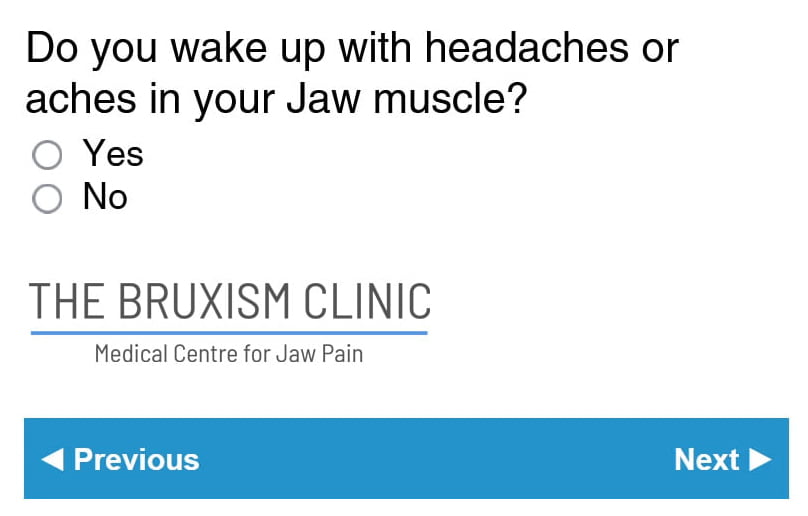Teeth grinding, also known as bruxism, is a condition that involves involuntary clenching or grinding of the teeth. It can occur while awake or during sleep, often without the person realising it. This frequent grinding can lead to various problems, such as worn teeth, jaw pain, and headaches. Understanding what causes bruxism is key to managing it effectively. Whether you're experiencing this condition yourself or observing it in someone else, identifying the root causes can be enlightening and provide a path towards suitable care.
In Birmingham and beyond, teeth grinding can affect anyone, from children to adults. Many factors can trigger this behaviour, making it an important topic to address. Knowing what prompts bruxism empowers individuals to seek proper diagnosis and treatment, preventing long-term damage to dental health and improving overall well-being.
Common Causes of Teeth Grinding
Identifying why teeth grinding happens in the first place can improve one's quality of life. Here are some of the usual culprits:
- Stress and Anxiety: Stress often takes a physical toll on the body, and teeth grinding is one way this stress manifests. Anxiety can lead to clenching the jaw during both waking and sleeping hours. People under stress may find it difficult to relax their muscles, contributing to teeth grinding episodes.
- Sleep Disorders: Conditions like sleep apnoea are closely linked to bruxism. Disturbances during sleep might prompt the jaw to clamp down or grind involuntarily. In such cases, treating the sleep disorder might also reduce the grinding.
- Medications and Other Substances: Certain medications, particularly those that stimulate the nervous system, might unintentionally lead to teeth grinding. Similarly, substances like caffeine and alcohol can exacerbate the condition, affecting the quality of sleep and increasing tension in the jaw.
Understanding these common causes is a useful first step in managing teeth grinding. The next step involves addressing physical and lifestyle factors that contribute to the condition. Each person's experience with bruxism can vary, so pinpointing specific triggers might require some investigation. However, approaching it from a holistic standpoint can make a significant difference in reducing its impact.
Physical and Lifestyle Factors
Teeth grinding doesn't just stem from stress or medication. Physical and lifestyle factors play a significant part too. One of the primary culprits is bite misalignment. When the teeth don't align perfectly, the jaw can shift unconsciously, causing grinding. Regular dental check-ups can help identify and correct these alignment issues.
Diet and caffeine consumption also have a surprising impact. High intake of caffeine, commonly found in coffee, tea, and energy drinks, can increase the likelihood of teeth grinding. Reducing caffeine consumption in the afternoon and evening may lessen nighttime grinding episodes.
Furthermore, lifestyle habits like smoking and alcohol use are known to exacerbate bruxism. Smoking stimulates the body's nervous system, while alcohol disrupts sleep patterns, both of which can lead to an increase in grinding. Aiming for a healthier lifestyle with balanced nutrition and regular exercise might minimise these triggers.
The Role of Environmental Triggers
Our surroundings can influence bruxism more than we realise. Both home and work environments contribute significantly. A cluttered, noisy, or brightly lit space can promote tension and anxiety, which could manifest as teeth grinding. Creating a calmer, more organised environment helps reduce stress-induced grinding.
Noise and light also play roles. Loud or disruptive noises, even those not consciously noticed, can disturb sleep and prompt grinding during the night. Similarly, excessive light in the bedroom interferes with restful sleep, increasing the potential for bruxism. Using blackout curtains and sound machines might improve sleep quality.
Sleeping conditions make a big difference too. An uncomfortable sleeping position or poor-quality mattress can trigger or intensify bruxism. Ensuring a comfortable sleeping environment with supportive pillows and a quality mattress promotes better rest and may help alleviate grinding.
Diagnostic Methods for Teeth Grinding in Birmingham
In Birmingham, seeking professional advice for teeth grinding can lead to effective management and relief. Dentistry professionals use various diagnostic methods to determine the extent of bruxism and its causes. Comprehensive exams look at wear patterns on teeth and assess jaw muscle tension.
During a dental consultation, expect a detailed examination that may include questions about your sleep patterns, lifestyle, and overall health. This holistic approach ensures that all potential causes of grinding are considered. The dentist might also suggest using devices like bite guards to protect your teeth while additional causes are addressed.
Early diagnosis benefits individuals by preventing further dental damage and reducing associated discomfort. Knowing the specifics of your bruxism allows for tailored treatment plans that tackle both symptoms and underlying causes. This approach fosters long-term dental health and overall wellbeing.
Taking Action
Understanding teeth grinding opens up avenues for proper diagnosis and management. By exploring both common and unique factors that might contribute to bruxism, individuals can make informed decisions about their dental care. Addressing lifestyle and environmental influences complements professional interventions for a comprehensive solution.
Prioritising this self-awareness leads to more effective dental consultations and treatments. Those experiencing teeth grinding should feel encouraged to seek guidance from professionals who can provide expert insights and tailored solutions. Improving your life quality is about taking proactive steps to manage bruxism and enhance overall health.
Understanding teeth grinding and its various causes is the first step towards effective management and relief. If you're in Birmingham and seeking insight into teeth grinding diagnosis, consider how professional guidance can benefit you. At The Bruxism Clinic, our expert team is ready to provide personalised treatment options tailored to your needs. Discover how a comprehensive approach to diagnosis can help you minimise grinding and enhance your dental health.







